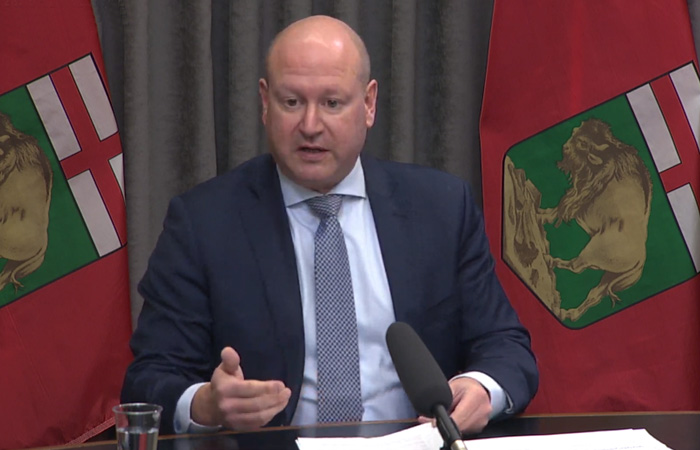Public health orders currently in place will continue for an additional week as Manitoba continues to assess the spread and impact of the omicron variant.
“Manitoba has imposed restrictions earlier and for a longer period of time compared to most other Canadian jurisdictions,” said Health Minister Audrey Gordon. “As we all learn to live with the virus, it is still critical that we stay the course over the next week. There are signs of stabilization but we need more data to fully assess our next steps and implement initiatives that support our pandemic response.”
Current orders expire on Tuesday, Feb. 1. They will be extended until 12:01 a.m. on Tuesday, Feb. 8. Manitoba remains at the Orange (Restricted) level under the Pandemic Response System.
Provincial data released today indicates that severe outcomes from the spread of the omicron variant may have peaked. Admissions to hospital and intensive care units are high but either stable or slowly declining in recent weeks. However, recent data from Winnipeg wastewater suggests the viral count may once again be increasing. Test positivity rates have limitations because they only include PCR tests. They have been high and stable at around 30 per cent in most regions.
“While we are seeing some key indicators signal a peak, we need to remain cautious in our approach to the virus,” said Dr. Brent Roussin, Manitoba’s chief provincial public health officer. “COVID-19 continues to add stress to our health care system and we need all Manitobans to get vaccinated, stay home when you are sick, get tested and self-isolate according to public health orders. I know we are all tired. Working together, we have the ability to reduce the impact of the virus.”
As work continues to manage hospitalization and ICU capacity, additional patients may need to be relocated outside of their home region. There continues to be capacity within Manitoba hospitals with care teams that are trained to provide appropriate, high-quality care for a wide range of patient needs.
“Manitoba recognizes that for some patients and their designated support person this is a short-term inconvenience, but for others it is a significant hardship,” said Gordon. “We are putting a new program in place that will provide financial assistance for meals, transportation and accommodations or link to community support resources when a person is relocated to a facility outside of their region for on-going inpatient care.”
When a patient is transferred out of their health region as a part of the inter-regional transfer policy, their regional health authority or service delivery organization will work directly with them and their designated support person to coordinate this financial assistance. The program will allow for up to eight visits per month by a designated support person and:
- meal vouchers so the designated support person can dine with the client when on-site meal service is available, or assistance to a maximum of $8 for breakfast, $10 for lunch and $15 for dinner when on-site meal service is unavailable;
- transportation assistance of return bus fare or gas expenses; and
- accommodation assistance up to a maximum of $70 per night plus taxes.
The program is effective today and the province will work with the approximately 250 transfers that occurred prior to today so that officials can ensure these situations are also addressed.
For more information about COVID-19 and the pandemic response in Manitoba, visit manitoba.ca.




